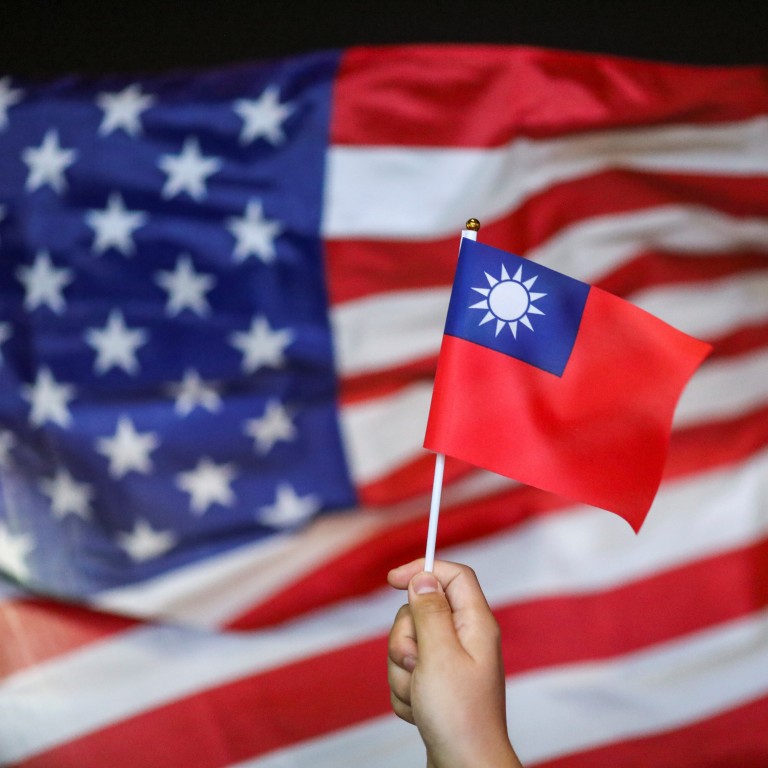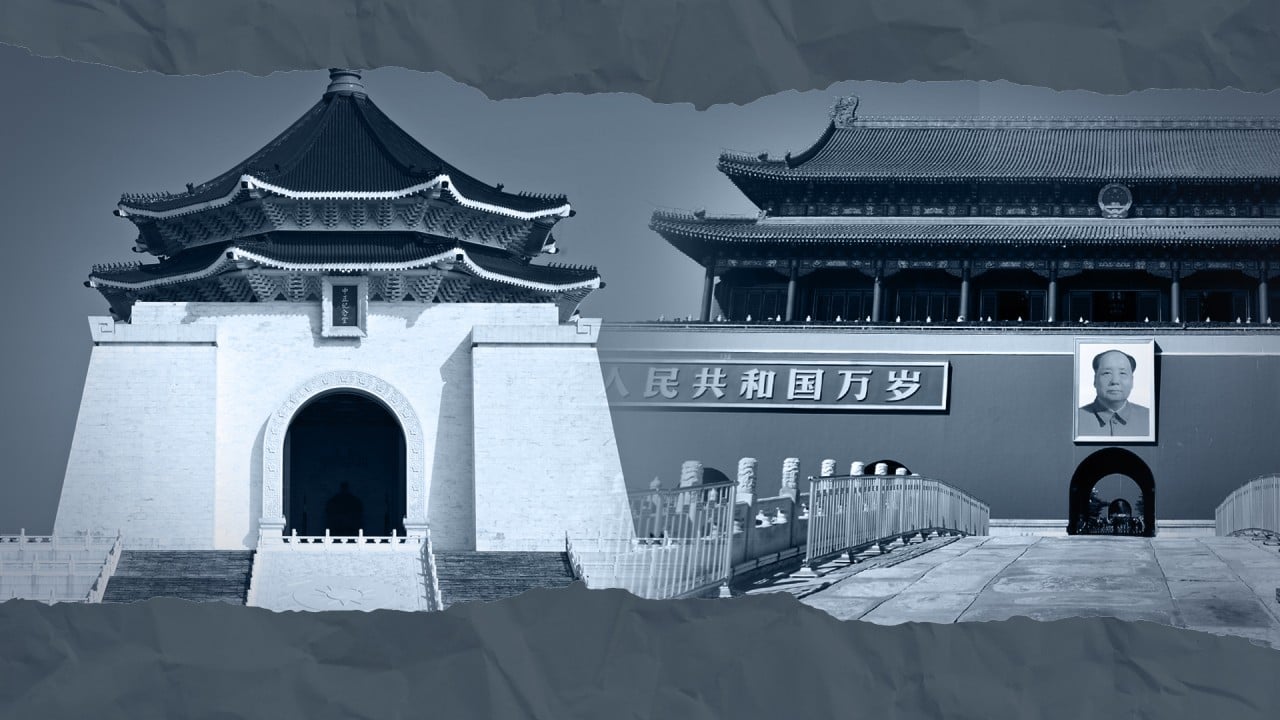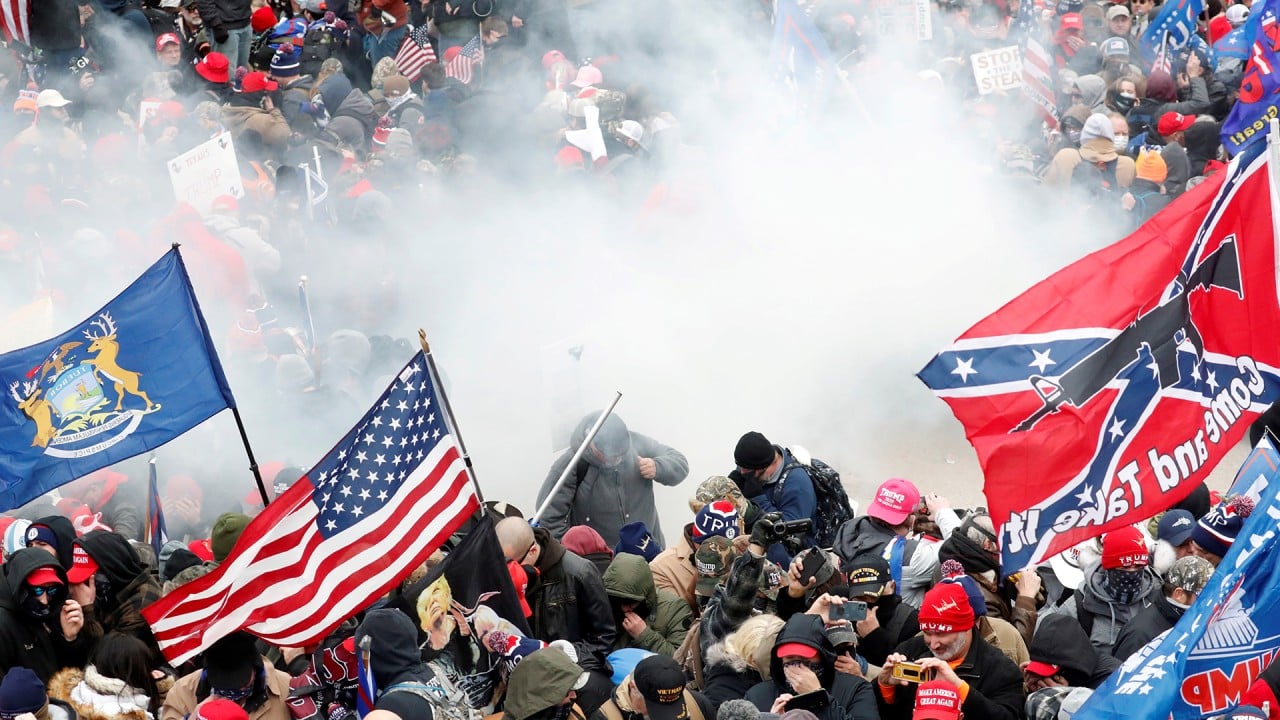
Beijing urged not to overreact to Trump administration’s ‘desperate last act’ on Taiwan
- Secretary of State Mike Pompeo announced he would remove constraints on official US engagements with Taiwan
- But analysts say it would be better to wait for Joe Biden to come to power amid growing clamour for US President’s impeachment
The US Secretary of State issued a statement on Saturday saying the previous restrictions on how American officials may interact with their Taiwanese government counterparts were “null and void”.
It followed Thursday’s announcement that Kelly Craft, the ambassador to the UN, would visit the island this week.
Trump, Tiananmen and the Chinese exile divide over the Capitol siege
Meanwhile, the People’s Liberation Army continued to maintain military pressure on Taiwan, sending two warplanes over the waters to the southwest of Taiwan before Pompeo’s announcement on Saturday – a flight that was shadowed by a US Navy drone.
According to Taiwanese media, this was the 22nd such operation this year.
Zhang Chunhui, a spokesman from the PLA Eastern Theatre Command pledged the military would “firmly defeat any attempt at Taiwanese independence”.
There has been no official reaction to Pompeo’s latest announcement from Beijing, but foreign ministry spokeswoman Hua Chunying described Pompeo’s announcement on Thursday as “madness”. She said Beijing would take “all necessary measures” and the US will “pay a heavy price for its erroneous actions”.
The Taiwan issue lies at the heart of US-China relations. The defeated Nationalists fled to the island in 1949 following the Communist victory, and the US continued to recognise their Republic of China government as the country’s rightful rulers until it formally established diplomatic relations with the People’s Republic in 1979.

10:22
Why has the relationship between the Chinese mainland and Taiwan taken a turn for the worse?
Beijing has always vowed to reunite Taiwan with the mainland – by force if necessary – while the US has continued to maintain commercial, cultural and other relations with Taipei and is committed to provide arms to help it defend itself.
The US government also set up a non-profit organisation – the American Institute in Taiwan – which serves as the de facto embassy in Taipei but it has traditionally maintained a low profile.
Pompeo said the restrictions had been adopted “in an attempt to appease the Communist regime in Beijing”, and in future all official engagements with Taiwan should be handled through the American Institute.
US is ‘playing with fire’ with envoy’s Taiwan mission, says China
But Zhu Feng, dean of international relations at Nanjing University, said: “Pompeo’s statement was first and foremost illegal, violating both legally binding international communiques [with Beijing] as well as US domestic law [the Taiwan Relations Act].”
Other Chinese analysts suggested Beijing should remain calm ahead of the transfer of power in Washington.
Lu Xiang, a senior fellow of US studies at the Chinese Academy of Social Sciences, said the US administration is practically in a status of “paralysis” after the attack on the Capitol.
“This order was Pompeo’s attempt to leave some political legacy and portray himself as a China fighter, which is unlikely to result in substantial consequences,” Lu said.
Wang Yong, a professor of international relations at Peking University also said that Beijing should not rise to Pompeo’s bait but wait to see what Biden decides to do.

03:23
China mocks the US as Beijing compares chaos at Capitol with Hong Kong protests
“Pompeo’s recent policies are a final act of desperation. It reflects his worries about his own fate. He is using the last days to do all he can to make an impact and cause trouble for Biden,” said Wang.
“When Biden is in office, it can be expected that he needs to fully overturn the Trump legacy, which would include certain adjustments to current China and Taiwan policies,” he said, adding that this had become a political necessity in Washington.
The language of Saturday’s statement was an “unprofessional” mixture of personalised political rhetoric and more formal legal terminology, according to Pang Zhongying, an international relations expert at the Ocean University of China.
“If anything, Pompeo’s statement revealed the existence of the ‘contact guidelines’ and self-imposed restrictions on the branches of the US government. So after he said that, whether the next administration would impose the same self-restraint is up to them.”

Zhu said although there was now a bipartisan consensus in Washington about taking a tough stance on China, there were still bottom lines that the political establishment was reluctant to cross.
“It would be insane for Biden to fully accept and follow Pompeo’s approach. Personally I don’t think he would act like that,” he said.
On Sunday the official state news agency Xinhua compared Pompeo to a desperate gambler trying to turn round his fortunes at the last minute.

